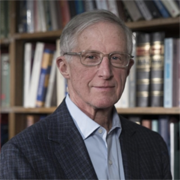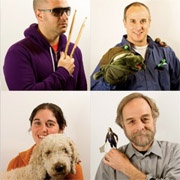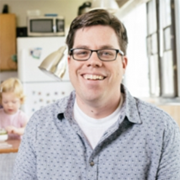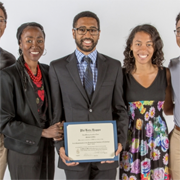News Archive 2018
School news from 2018.

Study offers new view of how cartels work
Less data-sharing among firms can actually lead to more collusion, economists find.
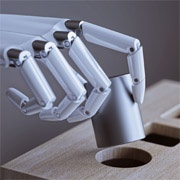
Why Artificial Intelligence Like AlphaZero Has Trouble With the Real World
The latest artificial intelligence systems start from zero knowledge of a game and grow to world-beating in a matter of hours. But researchers are struggling to apply these systems beyond the arcade.
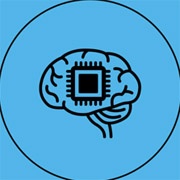
The AI boom is happening all over the world, and it’s accelerating quickly
The second annual AI Index report pulls together data and expert findings on the field’s progress and acceleration
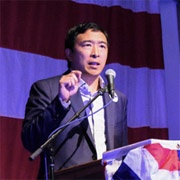
Universal income vs. the robots: Meet the presidential candidate fighting automation
7 questions for Andrew Yang, the 2020 US presidential candidate pushing for basic income.
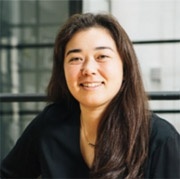
Building a more inclusive future, worldwide
An avid traveler, organizer, and educator, senior Kathleen Schwind helps others develop skills in negotiation and leadership.

INSIDE THE CLASSROOM
Music technology accelerates at MIT
An increasingly popular program is drawing students eager to build — and use — the next generation of tools for making music.
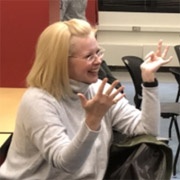
MIT student group explores the ethical dimensions of artificial intelligence.
MIT AI Ethics Reading Group was founded by students who have seen firsthand that technology developed with the best of intentions can still be problematic.
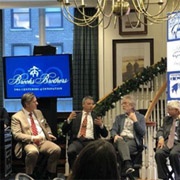
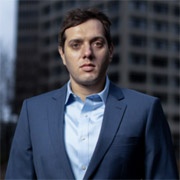
What game theory tells us about politics and society
Economist Alexander Wolitzky uses game theory to model institutions, networks, and social dynamics.
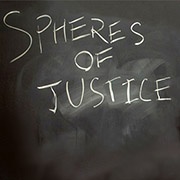
MAKING A JUST SOCIETY
Looking at justice through the lens of political theory
In Bernardo Zacka's 17.01 class, MIT students explore human values and competing theories of the just society
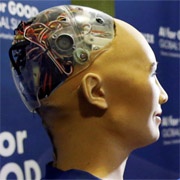
Aligning AI with basic human values
Article at Brookings discusses why it is important that each of the primary qualities of artificial intelligence accords with basic human values. "Each of the AI features has the potential to move civilization forward in progressive ways. But without adequate safeguards or the incorporation of ethical considerations, the AI utopia can quickly turn into dystopia."
PHILOSOPHY
The Trolley Problem, continued
The news and feature stories collected here refer to "The Trolley Problem," a moral philosophy thought experiment developed by MIT philosopher Judith Jarvis Thomson. For context, we provide background information on her original work.

Why We Need to Audit Algorithms
"Ensuring that societal values are reflected in algorithms and AI technologies will require no less creativity, hard work, and innovation than developing the AI technologies themselves. We have a proposal for a good place to start: Auditing."

AI thinks like a corporation—and that’s worrying
Artificial intelligence was born of organisational decision-making and state power; it needs human ethics, says Jonnie Penn of the University of Cambridge

MIT Open Learning launches Center for Advanced Virtuality
The new center will explore how MIT can use virtual reality and artificial intelligence and other technologies to better serve human needs.

Robot Reality Check: They Create Wealth—and Jobs
Economists say automation is the key to next boom, and the U.S. is falling behind
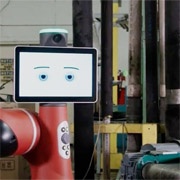
How technological innovation could amplify income inequality
"Technological advancement often brings the promise of increased efficiency in the workplace. But it also means apprehension about humans potentially being replaced by automation and artificial intelligence. In a new series, The Future of Work, Paul Solman explores the concept of 'creative destruction' and how innovation is poised to affect jobs, income inequality, mental health and more."
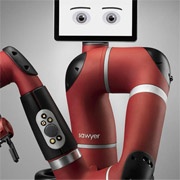
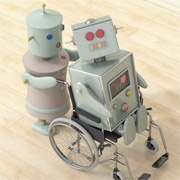
Can we trust AI lie detectors?
From the Chips with Everything podcast

Could AI predict crime?
UK police wants AI to stop violent crime before it happens
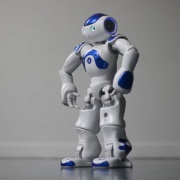
Robots could help us take care of our elderly
Our aging population could make such a future inevitable.
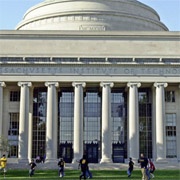
MIT to invest $1 billion in AI research
In its first fundamental restructuring in nearly 70 years, MIT announces that it will pump $1 billion into a new college focused on computing and artificial intelligence.
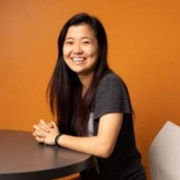
I think, therefore I code
Senior Jessy Lin, a double major in EECS and philosophy, is programming for social good.
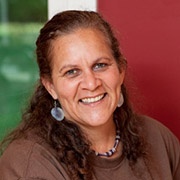
Jessie Little Doe Baird SM'00 receives 2010 MacArthur Fellowship
Award honors her work to revive Wampanoag (Wôpanâak), a language once spoken by tens of thousands of people, which became extinct in the 19th century.
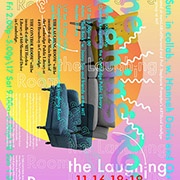
ART INNOVATION | COMPUTING AND AI
Inside The Laughing Room
An AI-powered laugh track amuses and unsettles in interactive installation. A work by Jonny Sun in collaboration with Hannah Davis, Christopher Sun, and MIT associate professor of literature Stephanie Frampton, head of the ARTificial Intelligence project

Artificial intelligence hits the barrier of meaning
Machine learning algorithms don’t yet understand things the way humans do — with sometimes disastrous consequences.
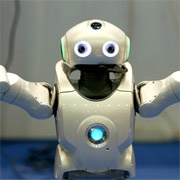
The Quartz guide to artificial intelligence
What is it, why is it important, and should we be afraid?
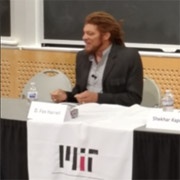
Exploring the future of learning through virtual and augmented reality
At a recent symposium, MIT Open Learning invited experts to discuss the power of VR and AR tools to drive engagement with education.
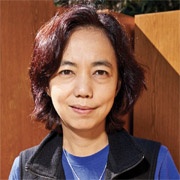
An AI pioneer, and the researcher bringing humanity to AI
The conscience of AI.

MIT ranked No.2 university worldwide for Arts and Humanities - 2019
MIT has been rated No.2 worldwide in the "Arts and Humanities" subject category in the 2019 Times Higher Education World University Rankings. The ranking is based on an evaluation of the disciplines located in the MIT School of Humanities, Arts, and Social Sciences — and in the MIT School of Architecture and Planning.
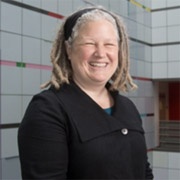
Inside the world of livestreaming as entertainment
T.L. Taylor looks at how computer gaming and other forms of online broadcasting became big-time spectator sports.

The World of A.I.
Judging by the breathless coverage, it can seem as if the only countries developing A.I. are the United States and China. But it’s still early for the industry and other nations are working hard to become major A.I. players.
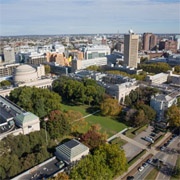
MIT Task Force on the Work of the Future announces advisory and research boards
Leaders from industry, academia, labor, government, foundations, andother organizations, as well as leading scholars in related fields, will provide guidance.

Online hate is spreading; Internet platforms can't stop it
Media companies have not figured out what to do about the threats and abuse that pollute their platforms.
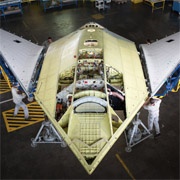
Will there be a ban on killer robots?
Without a nonproliferation agreement, some diplomats fear the world will plunge into an algorithm-driven arms race. “A lot of A.I. technologies are being developed outside of government and released to the public. These technologies have generic capabilities that can be applied in many different domains, including in weaponization.”
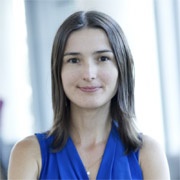
Volha Charnysh examines the aftermath of violence
Investigating the political and economic consequences of large-scale deadly conflict, Charnysh discovers that community-level interactions make a big impact.
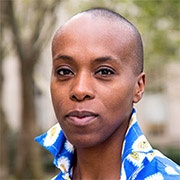
3 Questions with M. Amah Edoh
On Africa and Innovation
"Africa today is seen as the future of global innovation and entrepreneurship in areas from technology to the arts. Important questions about Africa’s new visibility include: Who is recognized as an expert? What is seen as innovative, and what knowledge is considered worth carrying forward? Who gets to be the face of this 'New Africa'?"
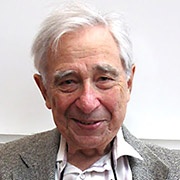
Sylvain Bromberger, philosopher of language and science, dies at 94
"Sylvain made enduring contributions to philosophy and linguistics, and his colleagues and students were frequent beneficiaries of his kindness and intellectual generosity. He had an amazing life in so many ways, and MIT is all the better for having been a part of it.”
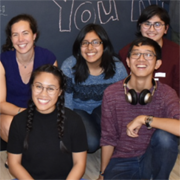
Starting new conversations about identity abroad
New MISTI programs provide a platform for student dialogue on diversity in international travel, study, and work.
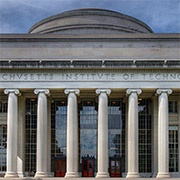
MIT ranked No. 1 university worldwide for Economics and Business - 2019
The Times Higher Education World University Ranking system determines a university’s quality in a given subject area by examining five areas: the learning environment; the volume, income, and reputation of its research; the influence of its citations in other research; the international outlook of its staff, students, and research; and its knowledge transfer to various industries.

DEMOCRACY | ELECTION INSIGHTS
Christine Walley on Work, Stories, and American Identity
"Building bridges requires going to the experiential core of our own stories, developing interpretations to make sense of them — and also listening carefully to the stories of others."

DEMOCRACY
Reading for the Midterm Elections 2018
As the 2018 midterms approach, MIT SHASS faculty offer a selection of books to consider for your reading list along with notes on the insights each book holds for this moment in American history.
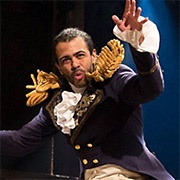
ELECTION INSIGHTS 2018
Musical Playlist | from the MIT Music community
As America heads toward the 2018 midterm elections on November 6, MIT's Music community has prepared a wide-ranging Election Playlist as well as brief commentaries on why each work is recommended for this election season.
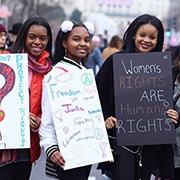
ELECTION INSIGHTS 2018
Helen Elaine Lee | On Women Candidates of Color
"A record number of women have filed as candidates this year, and a record number have won primaries in House and Senate races. Even if these milestones don’t result in a slew of wins in November, these candidates have changed established notions of what is possible."

ELECTION INSIGHTS 2018
Daron Acemoglu | On Civil Society and Democracy
"What is written in a constitution can take a nation only so far unless society is willing to act to protect it. We have to keep reminding ourselves that the future of our much-cherished institutions depends not on others but on ourselves, and that we are all individually responsible for our institutions."
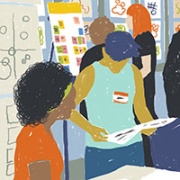
ELECTION INSIGHTS 2018
Sasha Costanza-Chock | On Media Technology and Immigration Policy
"The new wave of intersectional social movements, largely led by social media–savvy younger women and femmes of color, is the key to a transformation of our polity that represents the dreams and aspirations of the new millennial majority."

ELECTION INSIGHTS 2018
Vipin Narang | On the US/North Korea Relationship
"The North Korean nuclear program is not something to be 'solved' — that window has closed — it is an issue to be managed. The good news is that the United States has a lot of experience managing the emergence of new nuclear weapons powers."

ELECTION INSIGHTS 2018
Justin Khoo | On Democracy and Civic Discourse
"Elections are helpful reminders (as if we needed any) that we do not all agree. We must somehow figure out how to get along despite our disagreements. In particular, we may wonder whether, and to what extent, we should tolerate views we disagree with. Is discursive intolerance, in some cases, required to promote a well-functioning marketplace of ideas?"

DEMOCRACY
Devin Caughey | On Contemporary Partisan Politics
"There are no easy solutions to polarization, but one possible way to ameliorate it is to make political parties stronger. One of the ironies of contemporary American politics is that partisanship is strong, but parties are, in important respects, weak."

ELECTION INSIGHTS 2018
John Tirman | On Reducing Gun Violence
"A social movement to challenge America's reslient gun culture has rocked politics for the first time in a generation, and might shake up congressional complacency in the midterm elections."
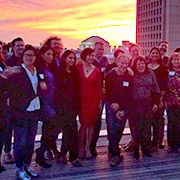
KSJ at MIT celebrates 35th anniversary and launches a new award
On September 23, 2018 MIT’s Knight Science Journalism program honored its founder, Victor McElheny, launched a new science journalism award that bears his name, and celebrated 35 years as one of journalism’s preeminent fellowship programs.
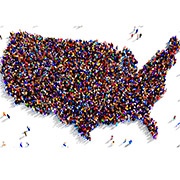
21ST CENTURY CITIZENSHIP
Election Insights 2018
Research-based perspectives from MIT
Commentaries on key issues along with a lively playlist—Music for the Midterms—and an Election Booklist of works selected by faculty as illuminating for this moment in American history.

ELECTION INSIGHTS 2018
Jennifer Light | On Social Media and Youth Political Engagement
"Although discussions about youth and new media tend to assume that it is something about the technology itself that is responsible for political and social changes, in fact, the political possibilities associated with contemporary media are highly contingent upon societal power structures."
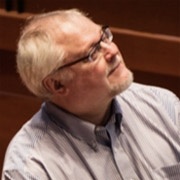
David Deveau blends old Europe and contemporary Cambridge
Pianist Deveau’s latest album interprets works by Beethoven, Mozart, and MIT’s own John Harbison.
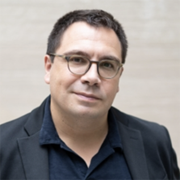
Civil rights in a complex world
Professor Bruno Perreau examines the relationships between personal identity and public institutions.
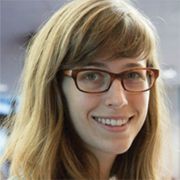
BASIC RESEARCH | ARTS INNOVATION
What Paris shows us about photography
In The Cliché of History, Catherine Clark develops a new narrative about photography and how it influences history, memory, and identity.
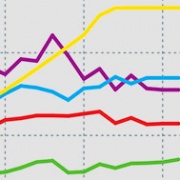
Q&A with economist Thomas Piketty
On globalization and growing inequality
"Globalization today is at a crossroad. It is confronted with major challenges, including rising inequality and global warming. At the same time there is a lot of skepticism about what governments can do to regulate global capitalism. Looking back at previous globalization episodes is critical, first to clarify the specificities of our time." — Thomas Piketty
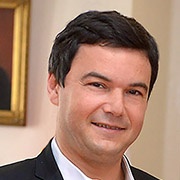
MAKING A JUST SOCIETY
At MIT, Thomas Piketty calls for policies to reduce worldwide inequalities
Globalization and the expanding ranks of the educational elite have contributed to the rise in inequality worldwide, but political policy changes can impact these trends, French economist Thomas Piketty told a packed house at MIT’s Kresge Auditorium on Tuesday, July 31.
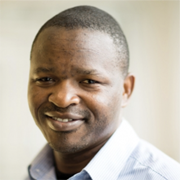
How Africans Developed Scientific Knowledge of the Deadly Tsetse Fly
“I wanted the reader to appreciate how language, deployed as a tool to silence African modes of knowledge, can be mobilized as a tool to recover that same knowledge. In a sense, the book hopes to excite younger scholars — and Africans! — to investigate, imagine, and make science from Africa."
Seth Mnookin brings bestselling author's touch to teaching science journalism
Science "pushes me to constantly go out of my comfort zone," says director of MIT's science writing program
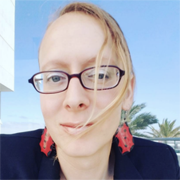
Sasha Costanza-Chock wins Journal of Design & Science essay competition
CMS/W professor examines “Design Justice, AI, and Escape from the Matrix of Domination”

PLANETARY HEALTH | CLIMATE
Ideas Matter series hosts explorations of Climate Change
Ideas Matter, a joint project of Boston Review and the MIT SHASS Department of Political Science, is a lecture series that brings Boston Review writers together with other experts and practitioners for debate on the challenges of our times.

PLANETARY HEALTH + SOCIAL INNOVATION
J-Pal launches energy and environment projects
The J-PAL Environment & Energy Initiative aims to help identify cost-effective solutions to the energy and environment challenges that confront developing countries.
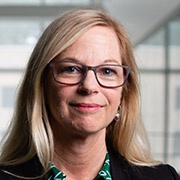
Lisa Parks contemplates the eyes in the sky
Media scholar examines the way satellites, drones, and other aerial technologies change society
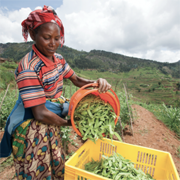
HUMAN HEALTH
J-PAL develops guide to measure women and girls' empowerment
In order to design effective policies and programs, researchers, policymakers, and practitioners must be able to accurately measure women’s and girls’ empowerment. A new research resource from the SHASS-based Abdul Latif Jameel Poverty Action Lab (J-PAL) addresses this challenge.
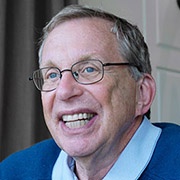
MIT economist Jerry Allen Hausman elected to the British Academy
The UK's national academy for the humanities and social sciences honors Professor Hausman for his distinguished work in the field of economics.
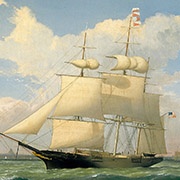
Q&A with historian Anne McCants
About the World Economic History Congress at MIT
"This strikes me as exactly the moment when the work of economic historians is of greatest importance. We have something useful to say about what the disruptions of previous 'waves of globalization' have looked like and how social and political communities have resolved the disruptions of those episodes."

21ST CENTURY CITIZENSHIP
Election Insights 2016
12 research-based perspectives from MIT
The 2016 presidential election brought to the fore a number of political, economic, and cultural issues that scholars in the MIT School of Humanities, Arts, and Social Sciences (MIT SHASS) think about deeply as part of their ongoing research. Here, 12 faculty members offer their perspectives on topics ranging from economic security to gender bias to the state of the U.S. electoral system itself. Follow links in each section for further discussion.
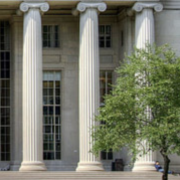
Three new faculty members join MIT SHASS
Dean Melissa Nobles and the School of Humanities, Arts, and Social Sciences are pleased to welcome the newest members of the MIT SHASS faculty. They come with diverse backgrounds and vast knowledge in their areas of research, which include the legacies of the Holocaust, the rise of "the Girl" as an object of global investment, and public service in the context of moral agency.
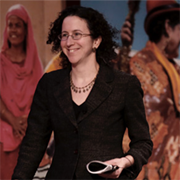
HUMAN HEALTH | ECONOMICS
Amy Finkelstein emphasizes the value of late-in-life health care spending
Study debunks notion that large chunks of Medicare go to futile end-of-life care
HASTS student discovers hidden stories in Flint water crisis
Graduate student Elena Sobrino looks beyond the headlines to study interactions between the city’s people and institutions.
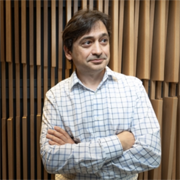
Professor Abadie invents new methods for economic research
Alberto Abadie refines the tools of economics — and gets some interesting results along the way.
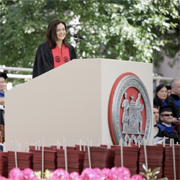
Facebook COO Sheryl Sandberg tells MIT grads "it's about people"
Commencement speaker says the greatest opportunities are for humans, not technology
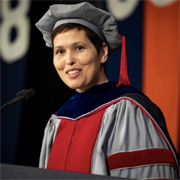
As 52 HASS PhDs graduate, a call to make the world “more just, more fair”
SHASS alum Candis Callison SM ’02, PhD ’10 speaks at hooding ceremony
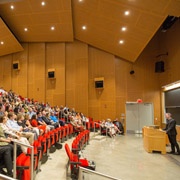
MIT Phi Beta Kappa Society inducts 77 students from the Class of 2018
New members achieved exceptional excellence in both the humanities and science scholarship.
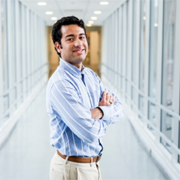
William Rodriguez: Helping others broaden their horizons
MIT senior and Model UN leader William Rodriguez works to encourage the global exchange of ideas

INSIDE THE CLASSROOM
The moral calculus of climate change
In a mathy philosophy class, MIT students explore the risks, probable outcomes, and ethical implications of living in a warming world.
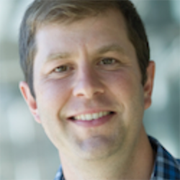
RESEARCH | 21st C. CITIZENSHIP
Study by Devin Caughey demonstrates the people's power.
New study shows that state-level policy in the U.S. is responsive to public opinion.

21st C. CITIZENSHIP | LEGACY OF SLAVERY
The Task of History
MIT historians discuss the power of historical knowledge to help make a better world.
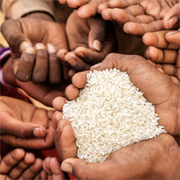
SOCIAL INNOVATION
Two SHASS professors show that for food-aid recipients, information is power
Profs. Olken and Banerjee describe how a simple card explaining a government aid program leads to more rice for poor villagers in Indonesia.
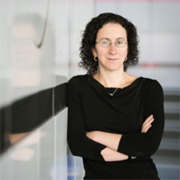
MIT SHASS CORE
Amy Finkelstein elected to National Academy of Sciences
Economist Finkelstein and three others from MIT — Kardar, Wen, and Zhang — are honored for research achievements.
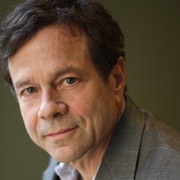
TEACHING AND LEARNING
3 Questions: Alan Lightman on science and the life of the spirit
Lightman's new book, “Searching for Stars on an Island in Maine,” examines the tensions between belief and knowing.
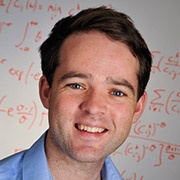
SOCIAL INNOVATION
Economist Dave Donaldson asks: How much does infrastructure boost an economy?
Donaldson's historical study details how railroads helped India trade and grow.
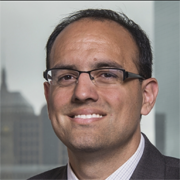
MIT SHASS CORE
Parag Pathak wins John Bates Clark Medal
MIT economist lauded for work on education, market-design mechanisms

MIT economists Parag Pathak and Nancy Rose elected to AAAS
Honor society announces 213 new members, eight from MIT.

HUMAN HEALTH
Jasmin Joseph: "I love the idea of making an impact on global health"
MIT senior and varsity softball co-captain brings positivity and determination to life-saving biology research.
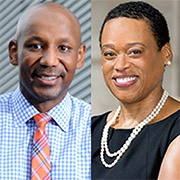
21st C. CITIZENSHIP | LEGACY OF SLAVERY
3Q Interview with Dean Nobles, Professor Wilder
"The MIT community has the opportunity to be involved in this endeavor in real time, learning from the emerging findings. and making informed suggestions to the leadership about potential responses." — Dean Melissa Nobles

2018 SHASS Levitan Teaching Awards announced
Dean Nobles has announced the recipients of the 2018 James A. and Ruth Levitan Awards for Excellence in Teaching. Warmest congratulations to these six educators and colleagues, who represent the very best academic leadership in the School.
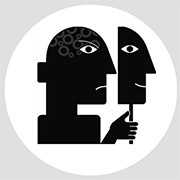
MENS ET MANUS AMERICA | 21st C. CITIZENSHIP
MMA explores fake news and real gender issues
MIT’s Mens et Manus America (MMA) initiative shed light on two major issues on the political landscape — fake news and gender politics — during back-to-back events on April 17 and 18.
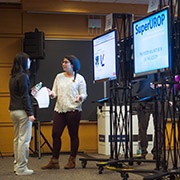
CS+HASS SuperUROP debuts with nine research projects
In yearlong program MIT undergraduates apply computer science to research in humanities, arts, and social science fields.

MAKING A JUST SOCIETY
MIT and the Legacy of Slavery Project
Stories, Videos, Community Dialogue
“I believe the work of this class is important to the present — and to the future. Something I have always loved about the MIT community is that we seek, and we face, facts. What can history teach us now, as we work to invent the future? How can we make sure that the technologies we invent will contribute to making a better world for all?" — L. Rafael Reif, President of MIT
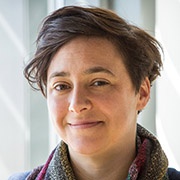
Q&A with historian Caley Horan
On innovation, risk-taking, and cultural transformation
Assistant Professor Caley Horan is an historian of the U.S. interested in the cultural and intellectual transformations of the post-WWII era. SHASS Communications spoke with her about her book manuscript, Actuarial Age, which explores the cultural life of insurance and the role of risk-based thinking in shaping American institutions and daily life during the second half of the twentieth century.

Media and Resource Collection | MIT and the Legacy of Slavery
Collected stories, videos, media, websites, and other resources about the MIT and Legacy of Slavery project
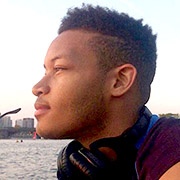
From blank verse to blockchain
The founder of a startup at the cutting edge of computer science, Ryan Robinson ’17 says that his MIT background in the humanities and engineering has helped him understand the human dimensions of the world’s greatest challenges.
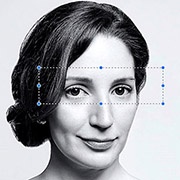
INSIDE THE CLASSROOM
Hacking virtual reality | CMS.339
Contributing to a culture of pioneers, MIT students in "Virtual Reality and Immersive Media Production" explore the technical, philosophical, and artful dimensions of VR.
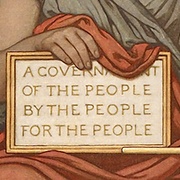
21st C. CITIZENSHIP
Is democracy dying?
At a recent Starr Forum, scholars and journalists examined the current pressures on democratic systems of rule and suggested some measures to protect them. Held in the Stata Center, the event drew a standing-room only crowd of more than 300.

MENS ET MANUS AMERICA | 21st C. CITIZENSHIP
Analyzing US immigration policy
Experts cite immigration as an engine of U.S. success; lament the human damage being done by current policies, and see signs of hope.

HUMAN HEALTH
How often do medical problems lead to bankruptcy?
A new study, co-authored by MIT economist Amy Finkelstein, finds that poor health is a less common cause of bankruptcy than commonly thought, but that it brings other economic woes.
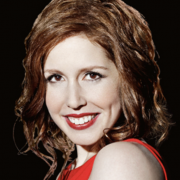
MIT SHASS and De Florez Fund welcome comedian Vanessa Bayer
MIT SHASS and the De Florez Fund for Humor welcome Vanessa Bayer with Mikey Day and Chris Redd for a free performance on Sunday, April 8 at 7:00 pm
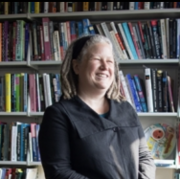
3Q: T.L. Taylor on diversity in e-sports
MIT sociologist’s “AnyKey” initiative aims to level the playing field of online sports.
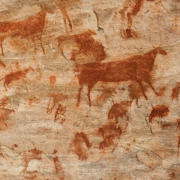
BASIC RESEARCH
The writing on the wall
Did humans speak through cave art? New paper by MIT linguist links ancient drawings and language’s origins.

HUMAN HEALTH
Ouch: Study reveals financial pain after hospitalization
A study co-authored by an MIT economist reveals that hospitalization and the health problems that cause it lead to a 20 percent drop in earnings and an 11 percent drop in employment for adults between ages 50 and 59, among other negative effects.
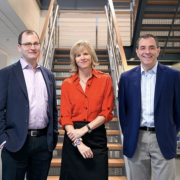
MIT launches Task Force on the Work of the Future
Institute-wide effort will study the evolution of jobs in an age of technological advancement. Members represent fields from engineering and cognitive science to economics, management, political science, anthropology, education innovation, and the history of technology.
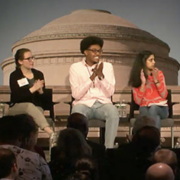
RESEARCH | 21st C. CITIZENSHIP
Institute community explores initial findings from “MIT and Slavery” class.
Students in an undergraduate research course bring the Institute into national conversation about universities and the legacy of slavery. “I believe the work of this class is important to the present — and to the future,” says MIT President L. Rafael Reif. “What can history teach us now, as we work to invent the future? How can we make sure that the technologies we invent will indeed contribute to making a better world for all?"
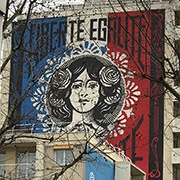
Outstanding MIT students of French explore "Paris et la rue"
With Professor Bruno Perreau and local expert guides, MIT students discover behind-the-scenes Paris and the city’s storied streets during the 2018 January Scholars in France program.
Facing new facts from MIT's past
Letter from President L. Rafael Reif on MIT and the legacy of slavery
Economist Christina Romer ’85 to give 2018 Muh Award lecture
Economist Christina Romer PhD ’85 has been selected as the recipient of the 2018 Robert A. Muh Alumni Award in the Humanities, Arts, and Social Sciences in recognition for her contributions to the field of economics.
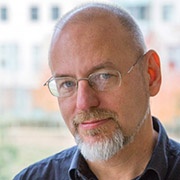
SOCIAL INNOVATION
Anthropologist Stephan Helmreich conducts fieldwork aboard the FLIP ship
As part of his ongoing research on how scientists think about the world, Helmreich wanted to know: What are the changing theories, models, and technologies that physical oceanographers use to apprehend and understand waves?
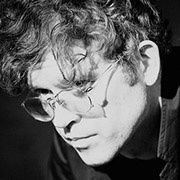
Q&A: Jay Scheib on theater, daring, and love
MIT theater professor directs award-winning rock musical; in December 2017, his "Bat out of Hell" won the London Evening Standard Radio 2 Audience Award for Best Musical.
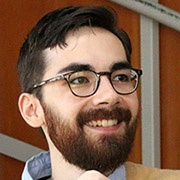
CITIZENSHIP | IMPACT OF LANGUAGE
Applying philosophy for a better democracy
In a new philosophy class, MIT students explore how language affects censorship, dissent, lies, and propaganda.
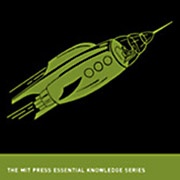
SOCIAL INNOVATION | CITIZENSHIP
3Q: Nick Montfort on shaping the future
“Whether you’re an entrepreneur or in an established business, an activist, writer, or artist: How have people productively engaged the future?”
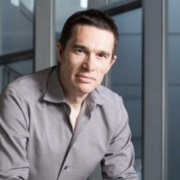
INNOVATION
Innovation, meet organization
Economist John Van Reenen studies the creation and use of technology, from the R&D lab to the workplace.
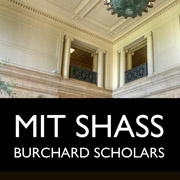
SHASS selects 36 MIT students as 2018 Burchard Scholars
The award honors sophomores and juniors who demonstrate academic excellence in the humanities, arts, and social sciences, as well as in science and engineering.
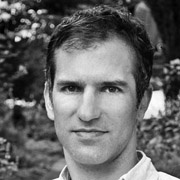
Q&A with Seth Mnookin
On the fallacy of “both sides” journalism
"American journalism is based on the principle of objectivity: journalists are supposed to be dispassionate about the subjects they cover. We’ve seen too many journalists confuse not taking sides with not calling out liars and frauds or giving too much credence to fringe or extreme views."
